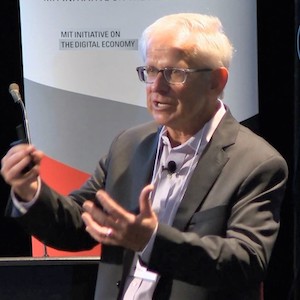 In early July 2023, the World Health Organization (WHO) issued its 2023 report on Emerging Technologies and Scientific Innovations: A Global Public Health Perspective. This insightful and detailed report is the result of strategic engagement with a panel of global health experts through the use of an online Delphi method, roundtable discussions, and key informant interviews. The purpose of this report is to identify innovations in research and emerging technologies that have the potential to impact global health in the next five to ten years.
In early July 2023, the World Health Organization (WHO) issued its 2023 report on Emerging Technologies and Scientific Innovations: A Global Public Health Perspective. This insightful and detailed report is the result of strategic engagement with a panel of global health experts through the use of an online Delphi method, roundtable discussions, and key informant interviews. The purpose of this report is to identify innovations in research and emerging technologies that have the potential to impact global health in the next five to ten years.
Feature Articles
Three highlights from Open Source Summit Europe 2023
The Open Source Summit Europe is a conference organized by the Linux Foundation with the goal of bringing together Open Source developers, technologists and community leaders to collaborate, share info rmation, solve problems and gain knowledge. Last week, the Open Source Initiative (OSI) was present at this event, driving three key efforts:
rmation, solve problems and gain knowledge. Last week, the Open Source Initiative (OSI) was present at this event, driving three key efforts:
- the Open Source AI discussion
- the launch of Opensource.net
- the future of ClearlyDefined.
How The OSI Checks If New Licenses Comply With The Open Source Definition
 Earlier this month, we announced completion of the project to review the list of Approved Licenses. The Open Source community needs a resource to confidently and easily identify OSI-approved licenses, and now we have it. This approval registry offers a comprehensive and authoritative listing of all licenses so organizations know that the license they choose for their project allows their software to be freely used, modified, shared and monetized in compliance with the Open Source Definition. But how do we check the compliance of new licenses with the Open Source Definition? The License Review Working Group was formed to examine ways to improve the license review process, with the stated purpose of evaluating or reevaluating:
Earlier this month, we announced completion of the project to review the list of Approved Licenses. The Open Source community needs a resource to confidently and easily identify OSI-approved licenses, and now we have it. This approval registry offers a comprehensive and authoritative listing of all licenses so organizations know that the license they choose for their project allows their software to be freely used, modified, shared and monetized in compliance with the Open Source Definition. But how do we check the compliance of new licenses with the Open Source Definition? The License Review Working Group was formed to examine ways to improve the license review process, with the stated purpose of evaluating or reevaluating:
Immunization Information System Interoperability… What We’ve Learned Along the Way
 The IZ Gateway initiative (IZG) sponsored by the Centers for Disease Control and Prevention (CDC) is up and running. HLN has helped its Immunization Information System (IIS) clients connect to other IIS via the IZ Gateway from planning through testing and go-live. As anticipated, this electronic data exchange has resulted in an increase in record completeness for patient doses received in one jurisdiction, while living in another. Testing between our clients and other IISs, referred to as IIS-IIS pairings, has spurred productive inter-jurisdictional interoperability discussions, while also highlighting nuances in platform configuration. A few of these nuances are provided below.
The IZ Gateway initiative (IZG) sponsored by the Centers for Disease Control and Prevention (CDC) is up and running. HLN has helped its Immunization Information System (IIS) clients connect to other IIS via the IZ Gateway from planning through testing and go-live. As anticipated, this electronic data exchange has resulted in an increase in record completeness for patient doses received in one jurisdiction, while living in another. Testing between our clients and other IISs, referred to as IIS-IIS pairings, has spurred productive inter-jurisdictional interoperability discussions, while also highlighting nuances in platform configuration. A few of these nuances are provided below.
To Trust Artificial Intelligence, It Must Be Open And Transparent. Period.
 Machine learning has been around for a long time. But in late 2022, recent advancements in deep learning and large language models started to change the game and come into the public eye. And people started thinking, “We love Open Source software, so, let’s have Open Source AI, too.” But what is Open Source AI? And the answer is: we don’t know yet. Machine learning models are not software. Software is written by humans, like me. Machine learning models are trained; they learn on their own automatically, based on the input data provided by humans. When programmers want to fix a computer program, they know what they need: the source code. But if you want to fix a model, you need a lot more: software to train it, data to train it, a plan for training it, and so forth. It is much more complex. And reproducing it exactly ranges from difficult to nearly impossible.
Machine learning has been around for a long time. But in late 2022, recent advancements in deep learning and large language models started to change the game and come into the public eye. And people started thinking, “We love Open Source software, so, let’s have Open Source AI, too.” But what is Open Source AI? And the answer is: we don’t know yet. Machine learning models are not software. Software is written by humans, like me. Machine learning models are trained; they learn on their own automatically, based on the input data provided by humans. When programmers want to fix a computer program, they know what they need: the source code. But if you want to fix a model, you need a lot more: software to train it, data to train it, a plan for training it, and so forth. It is much more complex. And reproducing it exactly ranges from difficult to nearly impossible.
Understanding the Cyber Resilience Act: What Everyone involved in Open Source Development Should Know
 The European Union is making big changes to cybersecurity requirements with its proposed Cyber Resilience Act (CRA). You may have heard about the CRA’s potential impact on the open source ecosystem. But what does the Cyber Resilience Act mean for you? This post is an introduction to the Act and explains how it may affect the open source maintainers and developer community. Note that this post is based on a draft of the CRA from September 15, 2022. The Act is still in a draft stage and getting feedback, and its provisions may differ before it is passed into law. The Cyber Resilience Act was introduced by the European Parliament in September 2022. Its purpose is to establish cybersecurity requirements for devices and software marketed in the EU. Everybody who places digital products in the EU market will be responsible for additional obligations around reporting and compliance, such as fixing discovered vulnerabilities, providing software updates, and auditing and certifying the products.
The European Union is making big changes to cybersecurity requirements with its proposed Cyber Resilience Act (CRA). You may have heard about the CRA’s potential impact on the open source ecosystem. But what does the Cyber Resilience Act mean for you? This post is an introduction to the Act and explains how it may affect the open source maintainers and developer community. Note that this post is based on a draft of the CRA from September 15, 2022. The Act is still in a draft stage and getting feedback, and its provisions may differ before it is passed into law. The Cyber Resilience Act was introduced by the European Parliament in September 2022. Its purpose is to establish cybersecurity requirements for devices and software marketed in the EU. Everybody who places digital products in the EU market will be responsible for additional obligations around reporting and compliance, such as fixing discovered vulnerabilities, providing software updates, and auditing and certifying the products.
Diverse Open Source Uses Highlight Need For Precision In Cyber Resilience Act
 As the European Cyber Resilience Act (CRA) is entering into the final legislative phase, it still has some needs arising from framing by the Commission or Parliament that result in breakage no matter how issues within its scope are “fixed”. Here’s a short list to help the co-legislators understand the engagement from the Open Source community...OSI and the experts with whom they engage are not trying to get all of Open Source out of scope as maximalist lobbyists do for other aspects of technology. An exclusion from the regulation for Open Source software per se would open a significant loophole for openwashing. But the development of Open Source software in the open needs to be excluded from scope just as the development of software in private is. Our goal in engaging is just to prevent unintentional breakage while largely embracing the new regulation.
As the European Cyber Resilience Act (CRA) is entering into the final legislative phase, it still has some needs arising from framing by the Commission or Parliament that result in breakage no matter how issues within its scope are “fixed”. Here’s a short list to help the co-legislators understand the engagement from the Open Source community...OSI and the experts with whom they engage are not trying to get all of Open Source out of scope as maximalist lobbyists do for other aspects of technology. An exclusion from the regulation for Open Source software per se would open a significant loophole for openwashing. But the development of Open Source software in the open needs to be excluded from scope just as the development of software in private is. Our goal in engaging is just to prevent unintentional breakage while largely embracing the new regulation.
Driving The Global Conversation About “Open Source Artificial Intelligence”
 The Open Source Initiative (OSI) continues the work of exploring complexities surrounding the development and use of artificial intelligence in Deep Dive: AI – Defining Open Source AI, with the goal of collaboratively establishing a clear and defensible definition of “Open Source AI.” OSI is bringing together global experts to establish a shared set of principles that can recreate a permissionless, pragmatic and simplified collaboration for AI practitioners, similar to what the Open Source Definition has done.
The Open Source Initiative (OSI) continues the work of exploring complexities surrounding the development and use of artificial intelligence in Deep Dive: AI – Defining Open Source AI, with the goal of collaboratively establishing a clear and defensible definition of “Open Source AI.” OSI is bringing together global experts to establish a shared set of principles that can recreate a permissionless, pragmatic and simplified collaboration for AI practitioners, similar to what the Open Source Definition has done.
Low-cost Aplication Platforms (LCAP): What They Should Mean to Public Health
 Agency budgets continue to run tight, while the demands for data modernization continue to escalate. We are also seeing weakening markets – not strengthening markets – for core public health software systems like Immunization Information Systems (IIS) and Disease Surveillance/case management systems. One of the emerging, promising approaches are Low-cost Application Platforms (LCAP). What exactly are they, where did they come from, and are they a useful strategy for developing core public health applications?
Agency budgets continue to run tight, while the demands for data modernization continue to escalate. We are also seeing weakening markets – not strengthening markets – for core public health software systems like Immunization Information Systems (IIS) and Disease Surveillance/case management systems. One of the emerging, promising approaches are Low-cost Application Platforms (LCAP). What exactly are they, where did they come from, and are they a useful strategy for developing core public health applications?
Celebrating 25 Years of Open Source at the COSCUP Conference in Taiwan
 Navigating uncharted waters often leads to intriguing discoveries. Imagine immersing yourself in a realm that commemorates a quarter-century of Open Source accomplishment. Invited by Open Source Initiative (OSI) to reflect upon the 25 years of Open Source at COSCUP, a conference in Taiwan that focuses on coders, users and promoters of Open Source, I threw myself into these waters by proposing a review of history that is not unique around the globe, taking my perspective from South America and Europe to Asia, where I had never before ventured. You can read a full transcript of my talk here and check my critical take on the topic. After all, to review is to be able to identify where we failed and to be able to proceed from there.
Navigating uncharted waters often leads to intriguing discoveries. Imagine immersing yourself in a realm that commemorates a quarter-century of Open Source accomplishment. Invited by Open Source Initiative (OSI) to reflect upon the 25 years of Open Source at COSCUP, a conference in Taiwan that focuses on coders, users and promoters of Open Source, I threw myself into these waters by proposing a review of history that is not unique around the globe, taking my perspective from South America and Europe to Asia, where I had never before ventured. You can read a full transcript of my talk here and check my critical take on the topic. After all, to review is to be able to identify where we failed and to be able to proceed from there.
WHO Releases Report on Emerging Technologies and Scientific Innovations
On The Positive Effect of Collaboration and Information Sharing Among Physicians
 For better and for worse, our healthcare system is built around physicians. For the most part, they’re the ones we rely on for diagnoses, for prescribing medications, and for delivering care. And, often, simply for being a comfort. Unfortunately, in 2023, they’re still “only” human, and they’re not perfect. Despite best intentions, they sometimes miss things, make mistakes, or order ineffective or outdated care. The order of magnitude for these mistakes is not clear; one recent study estimated 800,000 Americans suffering permanent disability or death annually. Whatever the real number, we’d all agree it is too high. Many, myself included, have high hopes that appropriate use of artificial intelligence (AI) might be able to help with this problem. Two new studies offer some considerations for what it might take.
For better and for worse, our healthcare system is built around physicians. For the most part, they’re the ones we rely on for diagnoses, for prescribing medications, and for delivering care. And, often, simply for being a comfort. Unfortunately, in 2023, they’re still “only” human, and they’re not perfect. Despite best intentions, they sometimes miss things, make mistakes, or order ineffective or outdated care. The order of magnitude for these mistakes is not clear; one recent study estimated 800,000 Americans suffering permanent disability or death annually. Whatever the real number, we’d all agree it is too high. Many, myself included, have high hopes that appropriate use of artificial intelligence (AI) might be able to help with this problem. Two new studies offer some considerations for what it might take.
Open Policy Alliance: A New Program To Amplify Underrepresented Voices In Public Policy Development
 On behalf of the Open Source Initiative and the public policy team, I’m very pleased to share early news of our new educational program – one aimed at building and supporting a coalition of underrepresented voices from public benefit and charitable foundations. This new program – the Open Policy Alliance – seeks to empower these voices and enable them to actively participate in educating and informing US public policy decisions related to Open Source software, content, research, and education. The OPA is created in response to increased demand for public dialog and stakeholder engagement in these adjacent and related “open domains”.
On behalf of the Open Source Initiative and the public policy team, I’m very pleased to share early news of our new educational program – one aimed at building and supporting a coalition of underrepresented voices from public benefit and charitable foundations. This new program – the Open Policy Alliance – seeks to empower these voices and enable them to actively participate in educating and informing US public policy decisions related to Open Source software, content, research, and education. The OPA is created in response to increased demand for public dialog and stakeholder engagement in these adjacent and related “open domains”.
Does your Healthcare Company have a Platform Business Model?
 Your Company Has A Technology Platform…But Do You Have A Platform Business Model and Strategy? Today in healthcare, platforms are understood mostly as technology. That’s not wrong, but it’s limiting and it misses a huge opportunity to adopt a platform business model. In most other industries platforms are also understood as a business model and strategy. Outside of healthcare, there are 45+ books focusing on this topic...A platform business model connects producers and consumers — creating an ecosystem that facilitates value exchange and interaction between them. Unlike traditional linear business models, where companies primarily produce and sell products or services directly to customers, platform models serve as intermediaries, making connections and facilitating interactions between two (or more) parties.
Your Company Has A Technology Platform…But Do You Have A Platform Business Model and Strategy? Today in healthcare, platforms are understood mostly as technology. That’s not wrong, but it’s limiting and it misses a huge opportunity to adopt a platform business model. In most other industries platforms are also understood as a business model and strategy. Outside of healthcare, there are 45+ books focusing on this topic...A platform business model connects producers and consumers — creating an ecosystem that facilitates value exchange and interaction between them. Unlike traditional linear business models, where companies primarily produce and sell products or services directly to customers, platform models serve as intermediaries, making connections and facilitating interactions between two (or more) parties.
HITAC Task Force Comments on ONC HTI-1 NPRM
 On June 15, 2023, the Health Data, Technology, and Interoperability: Certification Program Updates, Algorithm Transparency, and Information Sharing (HTI-1) Proposed Rule Task Force 2023 released its recommendations on the Health Data, Technology, and Interoperability: Certification Program Updates, Algorithm Transparency, and Information Sharing (HTI-1) Proposed Rule which proposes new provisions from the 21st Century Cures Act and makes updates to the ONC Health IT Certification Program (Certification Program). The limited-engagement task force met intensely during April, May, and June 2023 to develop its own set of observations and recommendations which were submitted to the Office of the National Coordinator for Health Information Technology (ONC).
On June 15, 2023, the Health Data, Technology, and Interoperability: Certification Program Updates, Algorithm Transparency, and Information Sharing (HTI-1) Proposed Rule Task Force 2023 released its recommendations on the Health Data, Technology, and Interoperability: Certification Program Updates, Algorithm Transparency, and Information Sharing (HTI-1) Proposed Rule which proposes new provisions from the 21st Century Cures Act and makes updates to the ONC Health IT Certification Program (Certification Program). The limited-engagement task force met intensely during April, May, and June 2023 to develop its own set of observations and recommendations which were submitted to the Office of the National Coordinator for Health Information Technology (ONC).
Revisualizing and Recoding Health Care
 Two new books have me thinking about healthcare, although neither is about healthcare and, I must admit, neither of which I’ve yet read. But both appear to be full of ideas that strike me as directly relevant to the mess we call our healthcare system. The books are Atlas of the Senseable City, by Antoine Picon and Carlo Ratti, and Recoding America: Why Government Is Failing in the Digital Age and How We Can Do Better, by Jennifer Pahlka. Dr. Picon is a professor at The Harvard Graduate School of Design, and Professor Ratti is head of MIT’s Senseable Lab. Drawing on the Lab’s work, they write: “We hope to reveal here an urban landscape of not just spaces and objects, but also motion, connection, circulation, and experience.” I.e. dynamic maps. Traffic, weather, people’s moment-by-moment decisions all change how a city moves and works in real time.
Two new books have me thinking about healthcare, although neither is about healthcare and, I must admit, neither of which I’ve yet read. But both appear to be full of ideas that strike me as directly relevant to the mess we call our healthcare system. The books are Atlas of the Senseable City, by Antoine Picon and Carlo Ratti, and Recoding America: Why Government Is Failing in the Digital Age and How We Can Do Better, by Jennifer Pahlka. Dr. Picon is a professor at The Harvard Graduate School of Design, and Professor Ratti is head of MIT’s Senseable Lab. Drawing on the Lab’s work, they write: “We hope to reveal here an urban landscape of not just spaces and objects, but also motion, connection, circulation, and experience.” I.e. dynamic maps. Traffic, weather, people’s moment-by-moment decisions all change how a city moves and works in real time.